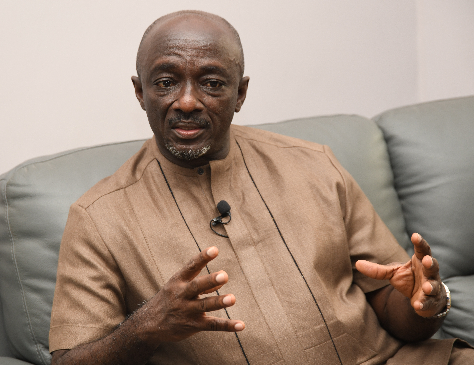
SIGA to list 11 state entities on stock exchange
The State Interest and Governance Authority (SIGA) has shortlisted 11 state-owned enterprises (SOEs) for listing on the Ghana Stock Exchange (GSE).
This follows a review of 36 companies, out of which the 11 were shortlisted as the first cohort to list and raise capital from the GSE.
The SIGA set up a technical and steering committee in February last year, with representatives from the GSE, SIGA, the Ministry of Finance (MoF) and the Securities and Exchanges Commission (SEC), to review the performance of the state entities.
Candidates for listing
Those shortlisted for listing include the Ghana Rubber Estates Limited, the Twifo Oil Palm Plantation, the Ghana National Gas Company Ltd, the Consolidated Bank Ghana Limited, the Ghana Reinsurance Co. Ltd and SIC Life.
The rest are the PSC Tema Shipyard, the State Housing Company Ltd, the TDC Company Limited, GHACEM and GIHOC Distilleries Ltd.
The Director-General of SIGA, Mr. Edward Boateng, who made this known to the Daily Graphic in an interview, said Cabinet approval was needed before the companies could be listed.
"The committee’s mandate was to identify, recommend and oversee the capital raising and listing of SIGA’s portfolio companies on the GSE," he said.
Mr. Boateng was speaking to the Daily Graphic on SIGA's strategies to turn around the fortunes of State-Owned Enterprises (SOEs) which, according to the MoF, had been making losses since 2015.
Strict compliance
He said several strategies were being deployed to make state entities profitable and capable of contributing significantly to the development of the country.
“Immediately, we will continue with ensuring strict compliance with key sections of the Public Financial Management (PFM) Act, 2016 (Act 921) and PFM Regulations, 2019 (L.I. 2378) on financial reporting and accountability," he said.
Mr. Boateng explained that strict compliance would ensure that SIGA would have up-to-date financial information on the companies for prompt decision making.
"This way, we will bring to past the issues of entities having so many years of arrears in auditing their financials," he said.
He said under his leadership, the authority would strengthen the performance contracting systems to ensure that targets were tailored towards sustainable operations and performance of the entities.
2022 Target
This year, he said, SIGA had been given the target of ensuring that SOEs contributed at least 30 per cent to total productivity, measured by gross domestic product (GDP), and the authority was putting in place key interventions to help achieve the target.
"This we will do by signing performance contracts, monitoring and evaluating the performance and linking performance to the remuneration of management and boards,” Mr. Boateng said.
“There will also be recommendations for sanctioning non-performing boards and management," he added.
Challenges
Mr. Boateng explained that in addition to policy incoherence, there were other challenges at SIGA that needed to be addressed, including strengthening the capacity of SIGA in terms of personnel, logistics, among others, to deliver effectively on its mandate.
He said there was also the need for streamlining SIGA's relationships with key institutions, such as the Ministry of Finance, the Bank of Ghana, among others, to clarify roles, avoid duplication, build synergies and foster stronger collaboration to ensure effective and profitable operations of the SOEs, where applicable.
He said there were also legacy debt issues which had stifled the operation of some specified entities that needed immediate attention.
He also said there were issues of lack of capitalisation of some entities and the public sector mindset of some boards, managers and staff of some entities.
Turnaround strategy
To help turn things around for the better, SIGA would make a presentation to the Cabinet about its portfolio management strategy, which would outline the SIGA-recommended entities the government should continue to maintain and monitor, those to be divested (fully or partially) and those to be recapitalised.
He said SIGA was currently discussing the possibility of debt-equity swap, by which the government would absorb some of the legacy debts of some selected entities.
Mr. Boateng added that SIGA's engagements with the GSE also presented another opportunity for some specified entities to take advantage of the market to raise long-term funding.
"SIGA will issue and ensure compliance with the Code of Corporate Governance, which seeks to instill good corporate governance practices among the boards of the entities," he added.
Background
There are 183 public enterprises, including SOEs, joint-venture companies (JVCs) and other state enterprises (COSEs), collectively known as specified entities (SEs).
The performance of SEs has largely turned downwards.
The entities increased their losses from GH¢2.1 billion in 2015 to GH¢5.3 billion in 2020, with a compound annual growth of 16 per cent.
As of the end of December 2021, only 31 out of 51 SOEs, 22 out of 89 OSEs and 22 out of 43 JVCs had submitted audited financial statements for 2020 to the Finance Ministry, in flagrant disregard for the reporting requirements specified in the PFM Act of 2016 and regulations, as well as the SIGA Act, 2019.
